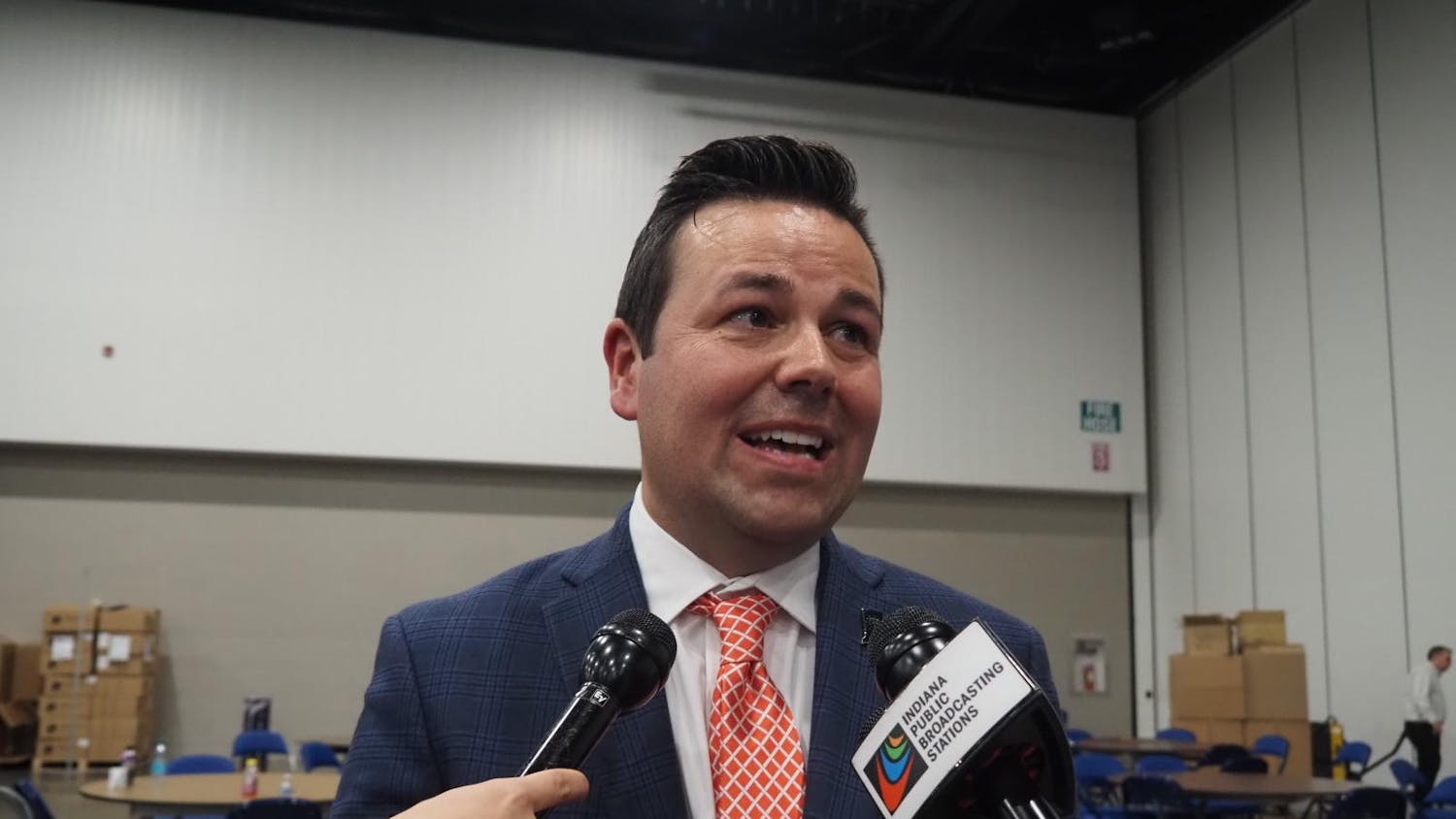Pop quiz: you are dealt the ace and six of clubs versus your best friend's pocket queens. The flop is jack-six-four with two clubs -- who is the statistical favorite to win the hand? \nAcross the country, poker is becoming the new golf. Nearly 48 percent of the 100 male students that I surveyed last week play poker at least once a month, making it almost as prevalent as alcohol on this campus. I personally play the game nearly every day and have an absolute blast doing so.\nIt seems everyone I know plays the game. A month ago, while getting a hair cut at Hair Jordan, the stylist -- a 30-something mother of two -- chatted my head off after I told her I had just cleaned up the night before at Texas Hold'em. Apparently, in between work and her kids, her other great passion is kicking the crap out of her husband's friends at 7-Card Stud. During a Super Bowl party, my opinion editor at the IDS was skillful enough to clean out her friends in a "no-limit" Hold'em tournament. Even my professors play poker. My A312 instructor from my junior year, Professor Chris Falk, played in the World Series of Poker last year. And just last week, I bumped into my freshman year K201 professor, Shannon Threlkeld, in the poker room at a local casino. \nMore than anything else, poker is a game of wits. While there is a tremendous amount of luck involved in the short-term, long-run success requires a superior understanding of a lot of complex concepts. Math and game theory economics play an omnipresent role in poker. At its heart, though, poker is really a lot like life; you must correctly analyze what you do know and make inferences about what you do not know. Playing and getting good at poker will help every person be more successful at most of life's challenges. For this reason, I think more people should learn to play.\nIf you don't already play, or if you do and are not that great yet, there is a lot you can do. First, go to the book store. Most good players I know have read: "Hold'em for Advanced Players," by David Sklansky; "Super System," by Doyle Brunson; and "Championship Pot-Limit and No-Limit Hold'em," by T.J. Cloutier, to name a few. Second, watch poker on TV. Aside from the educational value, its pretty cool stuff, too. The winner of the World Series of Poker won $2.5 million last year, and there really isn't anything else where you can see people competing for that much money. They even put all the cash on the table at the end. Finally, get your friends together and play. Poker is a game that is really best learned by experience; the more you play the better you will be.\nNaturally, the biggest concern about the growth in poker is that it is a form of gambling, a habit which can be very destructive and lead to financial ruin. According to Gamblers Anonymous (www.gamblersanonymous.org), some of the major warning signs of gambling addiction are: choosing to gamble instead of hanging out with your friends, having a separate account for gambling money, borrowing money to gamble and losing sleep over gambling. (For a complete list of the warning signs of gambling, you may wish to visit the Web site.) Fortunately, gambling addiction does not seem to be a major problem among those students I surveyed. Nearly all play for around $20-$40 at a time. \nAs for the pop quiz question, the correct response is: it depends. If your best friend does not have the queen of clubs, you are the favorite by a margin of 2 percent. Of course if he does, then he will take your money 51 times out of a hundred.
The biggest game in town
Get stories like this in your inbox
Subscribe





